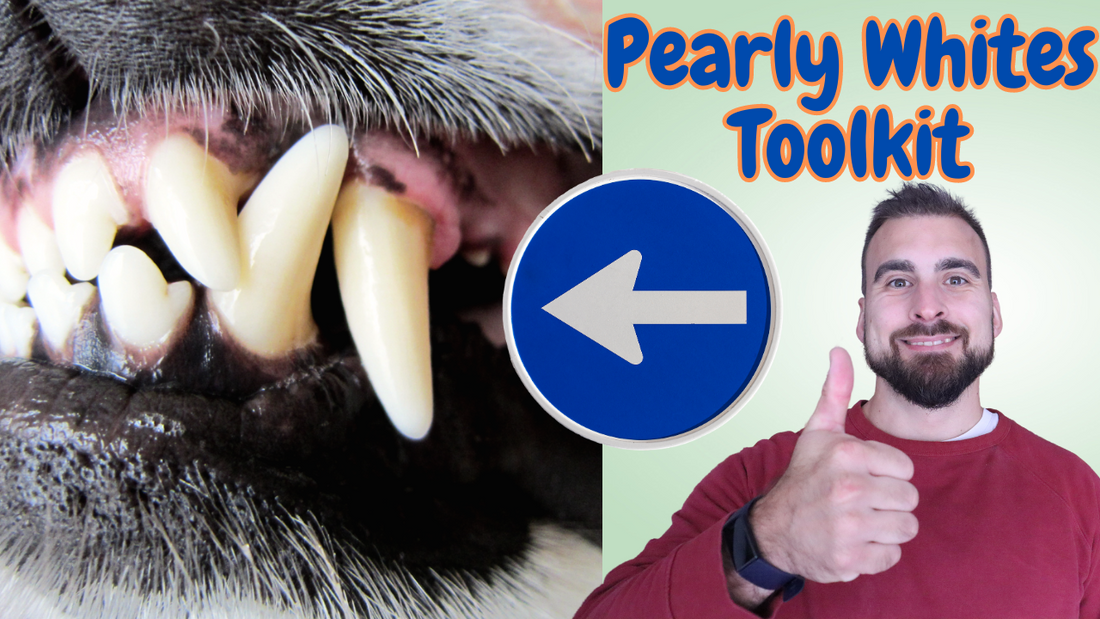
Best Dog Food For Dental Health Revealed. Dog Dental Diets.
Share
Dental hygiene and periodontal disease are two key issues in dogs these days. So much so that there is a huge amount of products promising you clean dog teeth.
But, do they work...or is it just marketing?
There are two main factors when it comes to dog's mouths.
- They lack salivary amylase.
- They need to use their carnassial teeth to clean their mouths.
Amylase is an enzyme that breaks down starches in the mouth. Whenever me and you eat bread, rice, or a carrot, we start breaking it down in the mouth because we have this enzyme. The more starches your dog consumes, the bigger the doggy breath.
Dogs do not have it. This means that the more starches your dog consumes in their diet, the more tartar accumulation you will notice.
Carnassial teeth are your dog's back teeth. If you inspect them, they are designed to crunch meat and bone. They are jagged and pointy.
When a dog chews a stick, or a bone, they use these back teeth to chip bone parts away. Constantly filing their teeth when doing so.
Before we look at what the best food is for your dog's dental health, you need to pay attention to these two things:
- Reducing the amount of carbohydrates you feed the dog. We recommend you read the ingredients of the food. Wheat is as much a carbohydrate as potato or apples.
- Providing your dog with natural dental chews. Antlers, yaks, horns, pizzles...
Shop Dog Chews
What about the food? What works?
We recommend you find a food that's free from these ingredients: Wheat gluten, barley, corn, rice...
Best dry dog foods
If you want to learn more about nutrition, follow our weekly Q&A podcast.
There are a lot of useless advice and things that simply do not work, from toothpaste to ''healthy'' dog chews made out of potato starch or cereals (remember amylase?).
If you didn't know. Now you know.